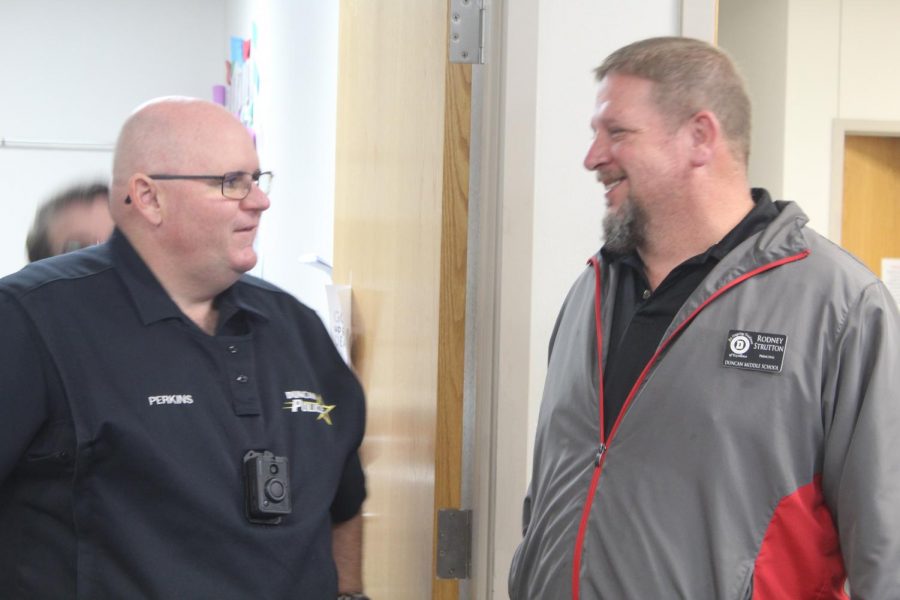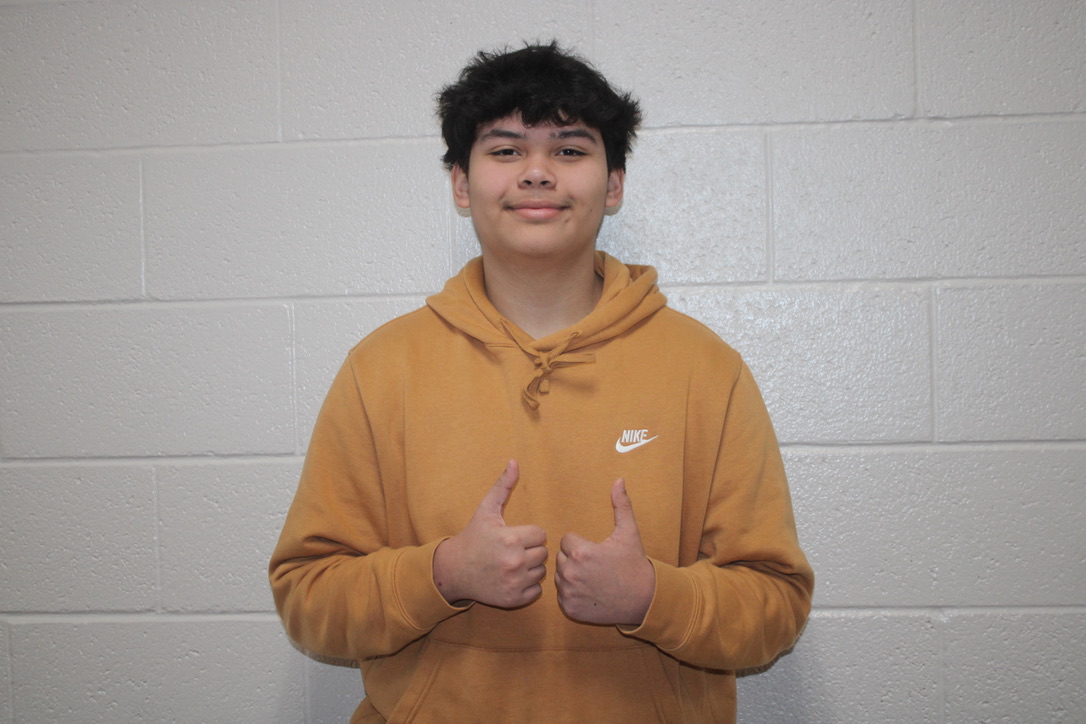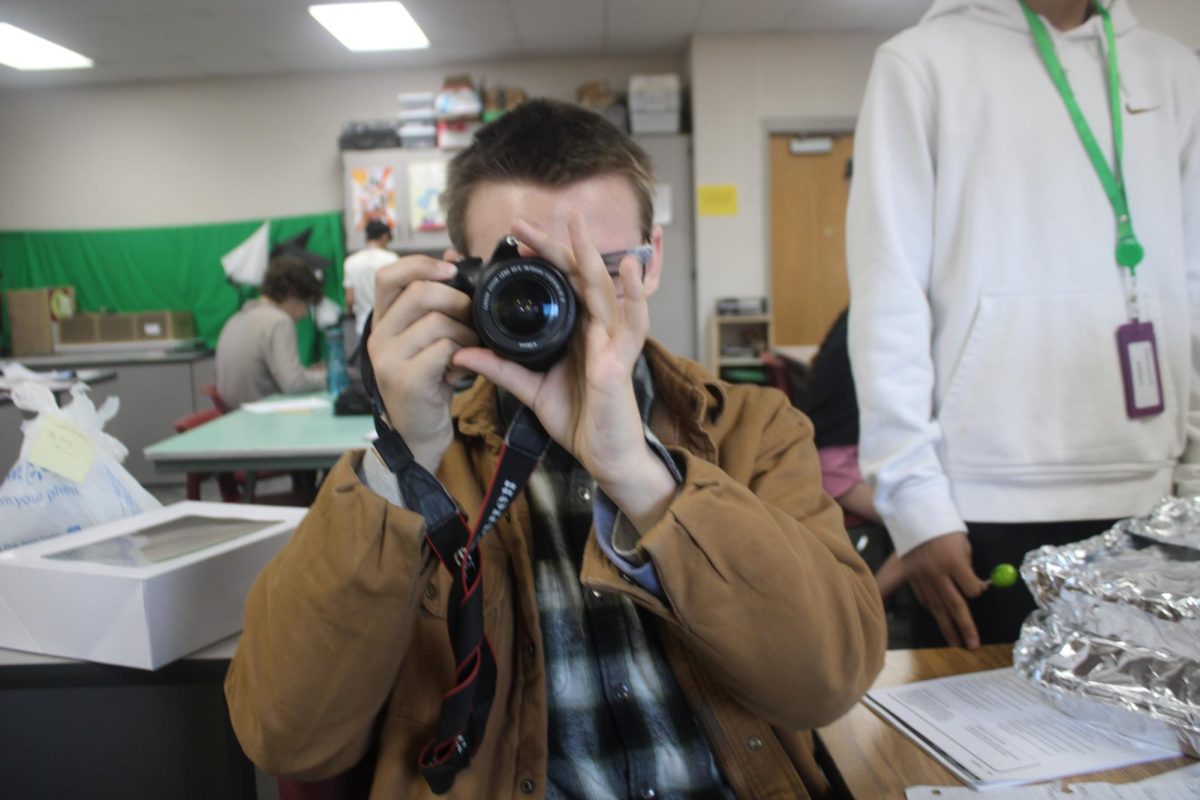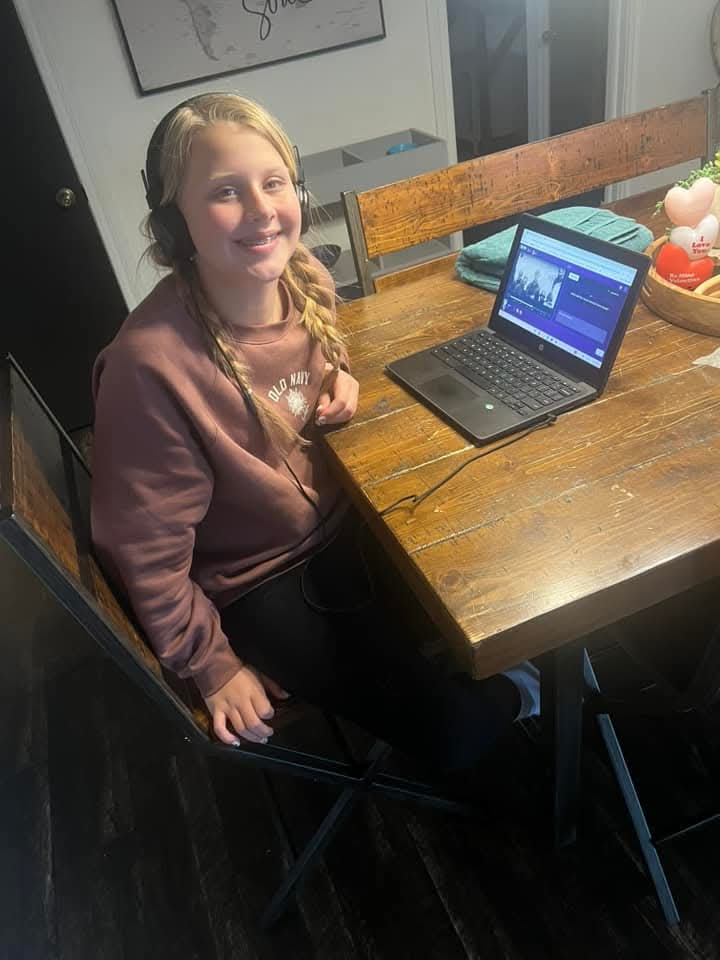
Officer Chris Perkins talks with DMS Principal Rodney Strutton today in the DMS office.
With the rise of cell phones and social media, a fine line has been drawn between what is appropriate and what could lead to legal issues for students.
For instance, many teens in the current generation think sending nudes is OK, but most don’t realize the dangers of it.
Officer Chris Perkins about the legal consequences of sending nude images.
Perkins said that images involving people who are under age of 18 usually have stricter consideration when trying to determine if the image is appropriate. For example, if a minor girl sent a picture of herself in a bra and underwear, would it still be considered a nude?
“I don’t think there’s a real clear answer on that but it definitely could be,” Perkins said. “It depends on the style of undergarments and the posing of the minor in the photo.
“A nude is anything showing the private areas of the person in the photo.”
Human trafficking
On Nov. 8, Duncan Middle School teachers had a human trafficking training to know what to look for if their students were being trafficked. The training was provided by the non-profit organization The Red Cord.
In the training, the topic of nude images was discussed because its connection to the human trafficking.
“Anytime someone takes a picture of uses a picture and sends it to the person who asked for it, by definition, it is a form human trafficking because it is taking advantage of the juvenile in the picture,” Perkins said.
In many cases, the trafficking situation begins with an exchange of nude images of the victim.
Legal ramifications
The exchange of nude images involving children underage is considered child pornography.
The person sending the image can be charged with distribution, while the person receiving it can be charged with possession. Both carry high levels of consequences.
“There was a law that said if you were under 15 you can’t be charged with it, but they recently removed it due to people sending nudes to teachers and other people just to get them in trouble,” Perkins said.
What to do
Not everyone receiving such images requests or even wants them. And many of those people don’t know what to do if they receive one.
“You should report it to a teacher or police officer or your parents,” Perkins said. “You need to go to the cops because you don’t wanna be charged with child porn.”
When it comes to these types of issues, especially human trafficking, contact 911 for situations of immediate danger. Other contact information for various hotlines is available here.





